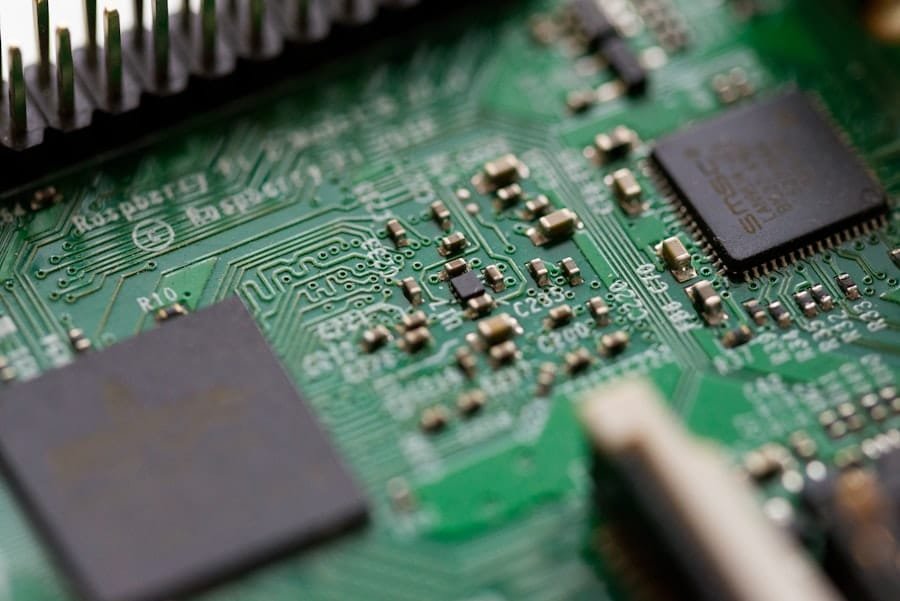In recent years, major technological innovations and breakthroughs have significantly impacted various industries and the global economy. These innovations have revolutionized the way businesses operate, communicate, and deliver products and services. From artificial intelligence to blockchain technology, 5G, biotechnology, genomic breakthroughs, and renewable energy innovations, these advancements have reshaped the economic landscape and created new opportunities for growth and development.
Artificial intelligence (AI) has been one of the most transformative technological innovations in recent years. AI has the potential to automate processes, improve efficiency, and drive innovation across various industries. From predictive analytics to natural language processing, AI has the ability to analyze large volumes of data and extract valuable insights that can inform business decisions and drive growth.
Additionally, AI-powered technologies such as chatbots and virtual assistants have revolutionized customer service and support, providing businesses with new ways to engage with their customers and improve the overall customer experience. Blockchain technology has also emerged as a major technological breakthrough with significant economic implications. Blockchain has the potential to revolutionize the way transactions are conducted, providing a secure and transparent platform for peer-to-peer transactions.
This technology has the potential to streamline supply chain management, reduce fraud, and improve transparency in various industries. Additionally, blockchain has paved the way for the development of cryptocurrencies, which have disrupted traditional financial systems and created new opportunities for investment and financial transactions.
Key Takeaways
- Major tech innovations and breakthroughs have revolutionized various industries, leading to increased efficiency and productivity.
- Artificial Intelligence has the potential to boost global GDP by 14% by 2030, with significant impacts on labor productivity and consumer demand.
- Blockchain technology is expected to generate .1 trillion in business value by 2030, transforming industries such as finance, supply chain, and healthcare.
- 5G technology is projected to add .2 trillion to the global economy by 2035, driving growth in sectors like manufacturing, healthcare, and transportation.
- Biotechnology and genomic breakthroughs are poised to create trillion in economic value by 2025, with implications for healthcare, agriculture, and environmental sustainability.
- Renewable energy innovations have the potential to create millions of jobs and drive economic growth while reducing carbon emissions and dependence on fossil fuels.
- The economic impact of these tech innovations is significant, with implications for job creation, industry transformation, and global economic growth.
The Economic Impact of Artificial Intelligence
Transforming Industries
Furthermore, AI has the potential to revolutionize industries such as healthcare, finance, manufacturing, and transportation. In healthcare, AI-powered technologies can analyze medical images, diagnose diseases, and personalize treatment plans, leading to improved patient outcomes and reduced healthcare costs. In finance, AI can be used to detect fraudulent activities, automate trading processes, and personalize financial services for customers.
Improving Efficiency and Productivity
In manufacturing, AI-powered robots and automation systems can improve production efficiency and quality control. In transportation, AI can optimize route planning, reduce fuel consumption, and improve safety.
The Future of Work
On the other hand, there are concerns about the potential impact of AI on jobs and employment. While AI has the potential to create new job opportunities in fields such as data science, machine learning, and AI development, there are concerns that automation could lead to job displacement in certain industries. As a result, policymakers and businesses must consider strategies to retrain and reskill workers to adapt to the changing labor market dynamics driven by AI.
The Economic Impact of Blockchain Technology

Blockchain technology has had a significant economic impact by revolutionizing the way transactions are conducted and creating new opportunities for innovation and growth. The decentralized nature of blockchain provides a secure and transparent platform for peer-to-peer transactions, reducing the need for intermediaries and streamlining processes. This has significant implications for industries such as finance, supply chain management, real estate, and healthcare.
In finance, blockchain technology has paved the way for the development of cryptocurrencies such as Bitcoin and Ethereum, which have disrupted traditional financial systems and created new opportunities for investment and financial transactions. Additionally, blockchain has the potential to streamline cross-border payments, reduce transaction costs, and improve transparency in financial transactions. In supply chain management, blockchain technology has the potential to improve transparency and traceability throughout the supply chain.
By recording transactions on a secure and immutable ledger, blockchain can reduce fraud, improve quality control, and streamline logistics processes. This has significant implications for industries such as food and pharmaceuticals, where traceability is critical for ensuring product safety and quality. Furthermore, blockchain technology has the potential to revolutionize the real estate industry by streamlining property transactions, reducing fraud, and improving transparency in property ownership records.
Additionally, in healthcare, blockchain can be used to securely store and share patient data, improving interoperability and data security.
The Economic Impact of 5G Technology
The economic impact of 5G technology is expected to be significant, with implications for various industries such as telecommunications, healthcare, manufacturing, transportation, and entertainment. 5G technology has the potential to revolutionize connectivity by providing faster speeds, lower latency, and increased capacity for data transmission. This has significant implications for industries that rely on real-time data transmission and connectivity.
In telecommunications, 5G technology is expected to enable new applications such as augmented reality (AR), virtual reality (VR), and Internet of Things (IoT) devices. This will create new opportunities for innovation in areas such as remote healthcare monitoring, smart manufacturing, autonomous vehicles, and immersive entertainment experiences. Furthermore, 5G technology has the potential to improve efficiency in manufacturing by enabling real-time monitoring of production processes, predictive maintenance of equipment, and remote operation of machinery.
In transportation, 5G can improve safety through vehicle-to-vehicle communication and enable new applications such as autonomous driving. Additionally, 5G technology has the potential to revolutionize entertainment experiences by enabling high-quality streaming of content such as 4K video, virtual reality experiences, and immersive gaming experiences. This will create new opportunities for content creators and entertainment companies to deliver innovative experiences to consumers.
The Economic Impact of Biotechnology and Genomic Breakthroughs
Biotechnology and genomic breakthroughs have had a significant economic impact by revolutionizing healthcare, agriculture, environmental sustainability, and industrial processes. These advancements have created new opportunities for innovation and growth while addressing some of the most pressing challenges facing humanity. In healthcare, biotechnology has paved the way for personalized medicine by enabling the development of targeted therapies based on an individual’s genetic makeup.
This has significant implications for improving patient outcomes while reducing healthcare costs associated with trial-and-error treatments. Additionally, biotechnology has enabled the development of new diagnostic tools, vaccines, and treatments for diseases such as cancer, diabetes, and rare genetic disorders. In agriculture, biotechnology has improved crop yields, reduced pesticide use, and enhanced resistance to pests and diseases through genetic modification of crops.
This has significant implications for addressing global food security challenges while reducing the environmental impact of agriculture. Furthermore, biotechnology has the potential to address environmental sustainability challenges by enabling the development of biofuels, biodegradable plastics, and sustainable materials. Additionally, biotechnology has revolutionized industrial processes by enabling the production of bio-based chemicals and materials through fermentation processes.
The Economic Impact of Renewable Energy Innovations

Solar Power: A Transformative Renewable Energy Source
Solar power has emerged as one of the most transformative renewable energy sources by providing clean energy solutions for residential, commercial, and industrial applications. The declining cost of solar panels has made solar power more accessible while creating new opportunities for job creation in installation and maintenance.
Wind Energy: A Significant Economic Impact
Wind energy has also had a significant economic impact by providing clean energy solutions for electricity generation. The development of offshore wind farms has created new opportunities for investment while reducing reliance on fossil fuels for electricity generation.
Hydroelectricity and Geothermal Energy: Longstanding Sources of Renewable Energy
Furthermore, hydroelectricity has been a longstanding source of renewable energy with significant economic implications for electricity generation. The development of small-scale hydroelectric projects has created new opportunities for rural electrification while reducing reliance on traditional grid infrastructure. Additionally, geothermal energy has the potential to provide clean energy solutions for heating and electricity generation by tapping into heat from the earth’s core. This has significant implications for reducing reliance on fossil fuels while creating new opportunities for sustainable development.
Conclusion and Future Implications for the Economy
In conclusion, major technological innovations and breakthroughs such as artificial intelligence, blockchain technology, 5G technology, biotechnology and genomic breakthroughs, and renewable energy innovations have had a profound economic impact by creating new opportunities for growth and development across various industries. These advancements have reshaped the economic landscape while addressing some of the most pressing challenges facing humanity such as healthcare access, environmental sustainability, energy security, and economic development. Looking ahead, these technological innovations are expected to continue driving economic growth while creating new opportunities for innovation in areas such as smart cities, digital transformation, sustainable development goals (SDGs), and global connectivity.
However, it is important for policymakers and businesses to consider strategies for addressing potential challenges such as job displacement due to automation while ensuring that these technological advancements benefit all segments of society. By leveraging these technological innovations responsibly while addressing societal challenges proactively, we can create a more inclusive and sustainable future for the global economy.
If you’re interested in learning more about the economic impact of major tech innovations and breakthroughs, you should check out The Econosphere’s blog. They have a great article discussing the potential economic effects of artificial intelligence on various industries. You can find the article here. It’s a fascinating read that delves into the potential benefits and challenges that AI could bring to the economy.
FAQs
What is the economic impact of major tech innovations and breakthroughs?
Major tech innovations and breakthroughs have a significant economic impact by driving productivity, creating new industries, and improving overall living standards. They can lead to job creation, increased efficiency, and higher economic growth.
How do major tech innovations and breakthroughs affect job creation?
Major tech innovations and breakthroughs can lead to job creation by creating new industries and increasing demand for skilled workers in areas such as software development, data analysis, and artificial intelligence. However, they can also lead to job displacement in certain industries as automation and new technologies replace traditional roles.
What are some examples of major tech innovations and breakthroughs that have had a significant economic impact?
Examples of major tech innovations and breakthroughs that have had a significant economic impact include the development of the internet, the proliferation of smartphones and mobile technology, the rise of e-commerce, and the advancements in artificial intelligence and machine learning.
How do major tech innovations and breakthroughs contribute to economic growth?
Major tech innovations and breakthroughs contribute to economic growth by increasing productivity, driving innovation, and creating new opportunities for businesses and consumers. They can also lead to the development of new markets and industries, further stimulating economic activity.








